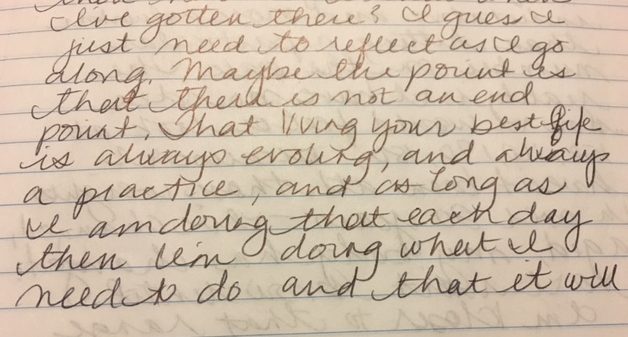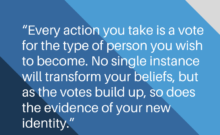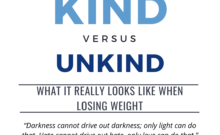I have found free writing to be a great tool for me in working on my weight wellness. Therefore, I thought I would talk a little about what free writing is, what it is not, and how I find it useful.
Free writing is a process in which you write continuously for a period of time. In doing so, you don’t pay any attention to spelling, grammar, or topic. Usually one writes for a predetermined amount of time, and you just starting writing, not stopping to pause, letting the thoughts go where they will. A narrative stream of consciousness.
What free writing is not is regular journaling. This is not where we record the daily happening of our lives, although some of that may come up in our writing. It is not a well thought out piece with an arch or structure. There is no editing, and no predetermined direction.
This concept is not a new one. Writers have been using this to explore subjects or making connections before putting into a more structured format. In the 1934 book, Becoming a Writer, Dorethea Brande suggests the practice of sit and writing for 30 minutes every day, as fast as you can. Others also have written about this practice such as Peter Elbow in Writing Without Teachers, and more recently, Julia Cameron in The Artist’s Way. Cameron also brought free writing to the weight loss arena in her book, The Writing Diet.
Cameron’s suggestion is what she calls the morning pages. Her rules for this practice include writing exactly three pages every morning in a stream of consciousness. She says that the writing of these pages help us to see that each day has many opportunities for choice and that we have a lot of freedom in choosing how we live. She says, “Our pen is the scalpel with which we lance the psychic infections we have been carrying.” She also says that once we identify a problem, the pages are quick to suggest solutions, and remind us that we are not trapped. She has witnessed free writing as a catalyst to transformation, and seen overeaters curb binges, and become a route for greater happiness.
I, too, have experienced these benefits. However, I am not one for arbitrary rules. (If you know me personally, this is probably not a surprise). I think the time of day or length of writing are more flexible than Cameron suggests, and I don’t see that flexibility subtracting from the benefits of the work. For me, what my practice looks like is writing for not much longer than 20 minutes (ranges from 8-30 minutes), which is usually between one to four pages. I also don’t usually do this in the morning, but rather during a lunch break, or in the evening.
However, I do stay in line with the core of the concept, and keep the pen moving without regard for structure and letting the pen take the lead. If my brain pauses during the process, I have noticed that instead of writing “I don’t know what to write”, I tend to ask myself a question. I treat it like I am having a conversation with my wisest self. For instance, I may ask “What else to talk about today?” Or, “Is there is anything else on the mind?” Those questions invite something else to show up and I write about that.
I think it’s also important to take a moment to mention the concept of expressive writing. Expressive writing is different from free writing, but can also be very useful in healing and health. There are some overlaps with expressive writing and free writing –they both are writing for a set amount of time, writing continuously, and without regard to spelling or grammar. However, expressive writing is usually driven by prompts, or a structure, that are focused on feelings. This topic could be a whole separate post, but I wanted to mention it as I have taken a course in expressive writing and find it full of value, and think you would too. It would be good to explore both strategies to find which you prefer, or maybe use both. A great book to check out is Expressive Writing: Words that Heal by Pennebaker and Evans.
I have found free writing to be immensely helpful in my life and my wellness seeking. For me, I find that by getting my thoughts on paper, it is easier to make sense of them, and very often help identify answers or perspectives I wouldn’t have gotten to so quickly or easily by letting them bounce around my brain. I find it is a time to ask myself good questions. If something feels stuck, somehow my pen tends to reveal answers that seem to come from this wiser self. It has shown me time and time again, that I have an inner knowing, and I can trust it. I just need to access it.
If something feels stuck, somehow my pen tends to reveal answers that seem to come from this wiser self.
Observing my thoughts, connecting with my wisdom, and getting my brain straight are all key ingredients in the weight wellness work. Our mental game is so essential. It is our thoughts that come before any feeling or action. If we emotionally eat, we need to take a look into our thinking and figure out how to clean up any messes so we don’t eat or numb our way through. To share an example when I was working though an issue, here is a little of what appeared in my writing:
Ok, I get the lesson here. All I can do is do what I think is right each day, and the rest will take care of itself. I need to be kind and present. I just need to keep showing up and doing the work and trusting even when it appears it is not going the way I think it should. Just keep swimming.
Meditation can provide awareness and clarity as well, but for me, it is easier to access revelations through this process of writing-without-filter than through meditation. Not to say I don’t find a lot of value in a meditation practice (again, a topic for another post). I get a lot from the just being with myself, and allowing what comes to come, and refining my practice of being in the observer space.
So to wrap it up, free writing can be an extremely effective portal to the inner wisdom that helps us navigate our best path toward weight wellness. If you haven’t tried it, I highly recommend taking your pen and paper out for a test drive, and checking out the scenery.




Leave a Comment